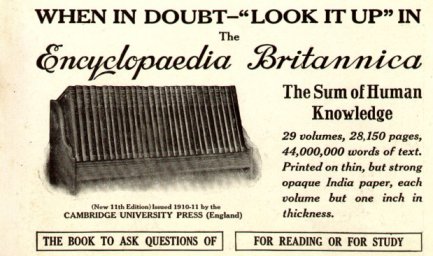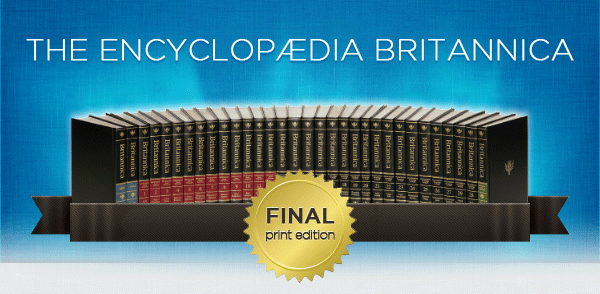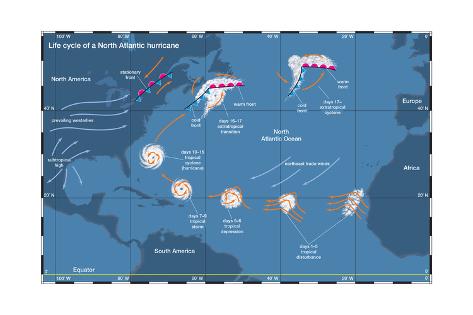
The Britannica was the idea of Colin Macfarquhar, a bookseller and printer, and Andrew Bell, an engraver, both of Edinburgh. The flow of short entries is interrupted here by one of the major treatises. The first encyclopedia to include biographies of living people was the 64-volume Grosses Universal-Lexicon (published 1732–1759) of Johann Heinrich Zedler, who argued that death alone should not render people notable.Įarliest editions (1st–6th, 1768–1824) First edition, 1771 Ī page from the first edition. Although not all encyclopedias succeeded commercially, their elements sometimes inspired future encyclopedias for example, the failed two-volume A Universal History of Arts and Sciences of Dennis de Coetlogon (published 1745) grouped its topics into long self-contained treatises, an organization that likely inspired the "new plan" of the Britannica.

Ephraim Chambers wrote a very popular two-volume Cyclopedia in 1728, which went through multiple editions and awakened publishers to the enormous profit potential of encyclopedias. However, English-composed encyclopedias appeared in the 18th century, beginning with Lexicon technicum, or A Universal English Dictionary of Arts and Sciences by John Harris (two volumes, published 17, respectively), which contained articles by such contributors as Isaac Newton. Most early encyclopedias did not include biographies of living people and were written in Latin, although some encyclopedias were translated into English, such as De proprietatibus rerum (On the properties of things) (1240) by Bartholomeus Anglicus. Encyclopedias were published in Europe and China throughout the Middle Ages, such as the Satyricon of Martianus Minneus Felix Capella (early 5th century), the Speculum majus ( Great Mirror) of Vincent of Beauvais (1250), and Encyclopedia septem tomis distincta ( A Seven-Part Encyclopedia) by Johann Heinrich Alsted (1630). ( June 2016) ( Learn how and when to remove this template message)Įncyclopedias of various types had been published since antiquity, beginning with the collected works of Aristotle and the Natural History of Pliny the Elder, the latter having 2493 articles in 37 books. Unsourced material may be challenged and removed. Please help improve this article by adding citations to reliable sources. This section needs additional citations for verification.

And he hopes consumers will be willing to pay for that. But above all, he knows that the most important thing is to produce an Encyclopedia Britannica with accurate and up-to-date information. It’s the murmur of society, a million voices rather than a single informed one.”Ĭauz and his team will be sprucing up the company’s website in the coming weeks, in an effort to make it more interactive. By moving online, that’s one issue the Encyclopedia Britannica’s creators will no longer have to contend with.Ĭauz calls Wikipedia a “wonderful technology for collecting everything from great insights to lies and innuendos.” He adds, “It’s not all bad or all good, just uneven. However, printed encyclopedias face a similar problem – even before the ink’s dried, information can be out of date. The vast majority of its revenue comes from online educational products and services. Even the online version is hardly a big revenue generator, making up just 15 percent of the company’s income. I think outsiders are more nostalgic about the books than I am.”Ĭauz said that despite its reputation, the print version of the encyclopedia accounts for a mere 1 percent of the company’s total sales. “Everyone will want to call this the end of an era, and I understand that,” he said. Some may be sad to see the printed edition fall by the wayside, but for Jorge Cauz, president of Encyclopedia Britannica, it’s essential for the company to move with the times.

The news means that the final print version of the highly regarded general knowledge encyclopedia was the 32-volume set published in 2010. The world’s oldest English-language encyclopedia, first published in 1768 in Edinburgh, Scotland, will now concentrate purely on its online edition, as well as its educational tools.

The Encyclopedia Britannica announced on Tuesday that after 244 years in print, it would no longer be producing physical copies of its multi-volume book set.


 0 kommentar(er)
0 kommentar(er)
